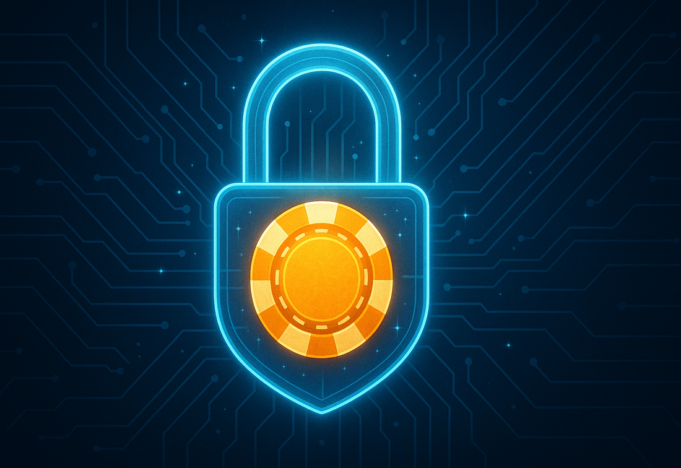If you’re playing at a pokies casino Australia like Pocket Pokies, the appeal is obvious. Flashy reels, familiar games, maybe the occasional bonus to sweeten the deal. But once the fun starts, it’s easy to forget how much of yourself you’ve handed over to get there. You’ve uploaded documents. Entered card numbers. Ticked terms and conditions without reading a word. And you’re not alone. Most players focus on the gameplay, not the data trail they’re leaving behind. But it’s worth slowing down. Because the question isn’t just “Is this casino fun?” — it’s “Is this casino safe?”
Why It Matters Now
Online gambling isn’t niche anymore. It’s mainstream. And with that, the stakes get higher. More traffic means more targets, and while most platforms aren’t shady, a few are sloppy. That’s where trouble starts.
Data breaches, phishing scams, identity theft — they’re not just headlines. They’re what happens when someone builds a casino with more focus on marketing than infrastructure. And once your information is out there, you don’t get it back. It’s not about playing scared. It’s about playing with your eyes open.
What Online Casinos Actually Collect
The sign-up form is just the beginning. Most people don’t think about what’s happening in the background — what’s logged, stored, or shared. The usual list includes your full name, home address, date of birth, card info or payment details, copies of ID for KYC (passport, licence, utility bill), and gameplay activity — what you play, when you play, how much you deposit.
Some of this is legally required. Anti-money laundering laws. Identity verification. It makes sense — casinos need to know who’s playing. But once your data’s in, it needs to be protected like it matters. Because it does.
Where Things Start to Fall Apart
Not every casino plays by the same rules. Some have no licence at all. Others copy-paste policies they barely follow. A few look polished until you try to withdraw, or worse — until your inbox starts filling with crypto spam and fake “support” emails.
It’s not always malicious. Sometimes it’s just lazy. A site might use outdated encryption. Or host player data in a country with weak privacy laws. The end result’s the same — your information floating around where it shouldn’t be.
It’s not about panicking every time you sign up. But if a site feels off, it probably is. Trust that instinct.
What a Decent Casino Actually Does
There’s no magic here. Just systems that work. Real casinos encrypt your data. They run audits. They use payment processors that require compliance, and they explain — in plain English — how your information is used.
Take Pocket Pokies Casino. The platform’s been around since 2020 and handles this stuff without making a show of it. SSL encryption? Standard. Player verification? Straightforward. No hidden pages, no fake badges. Just the basics done properly. That’s the difference. Quiet confidence instead of over-the-top promises.
It’s Not Just on Them
Even if the platform’s secure, players still play a role. Sometimes the weak point isn’t the site — it’s you, using the same password everywhere or clicking a sketchy email at 1am.
Here’s where a bit of effort makes a big difference:
Use a password you haven’t used elsewhere
Turn on two-factor authentication
Don’t upload your ID over café Wi-Fi
Stick to trusted payment methods
Read the privacy policy (even just once)
That last one’s underrated. If a policy mentions sharing your data with “partners” but doesn’t say who they are — that’s not transparency. That’s cover. You don’t need to understand every term. Just get a feel for whether the casino respects your data, or just needs it to tick a box.
When It Goes Wrong
No need for scare stories — but they exist. A crypto-heavy site with poor encryption leaked user data last year. Names, birthdates, documents. The whole lot.
One Aussie player said he used the site for a weekend, then forgot about it. A few months later, someone tried opening a credit account in his name. All traced back to that one signup. That’s not routine. But it’s also not rare.
What’s Changing
Things are improving. Slowly. Biometrics are on the rise. Some casinos are experimenting with ID checks that don’t store your documents. Others are building fraud detection into the backend so that weird logins get flagged before they become a problem.
Blockchain payments are part of the discussion — not just for anonymity, but because the transparency cuts both ways. But like anything new, it’s hit and miss. The main thing is that the direction’s right. The tech is catching up to the risk.
That said, some platforms are already ahead of the curve. Pocket Pokies, for example, hasn’t rushed out gimmicks. They’ve just stuck to the stuff that works. Which is rare, and oddly refreshing.
No One’s Going to Babysit You
You get one login. One password. One ID upload. After that, you’re on your own. No one’s going to email you and say, “Hey mate, your security settings are too basic.” So take five minutes and sort it now. Change the default password. Check if 2FA is offered. Use a prepaid method if you don’t want your main card floating around.
The risks don’t go away, but they shrink. And if something does go sideways? You’ll at least know you didn’t make it easy.
FAQs About Online Casino Data Security
Are online casinos required to protect my data? If they’re licensed, yes. Privacy protection isn’t optional — it’s part of the rules.
How do I know if a site is safe? Start with the basics: HTTPS in the address bar, clear licensing info, third-party audits. If it’s hard to find, that’s not a good sign.
Can I trust them with my ID? Only if you’ve done your homework. Licensed casinos using encryption? Yes. Random offshore sites that popped up last week? Probably not.
What’s the safest way to deposit? E-wallets like Skrill or PayPal. Prepaid options like CashtoCode work too — and are accepted at Pocket Pokies Casino.
Can I play anonymously? Not on licensed sites. Some crypto casinos skip verification, but those come with their own baggage.
What if I think a site mishandled my info? Stop playing. Contact support. Change your passwords. Report the issue to the licensing authority.












